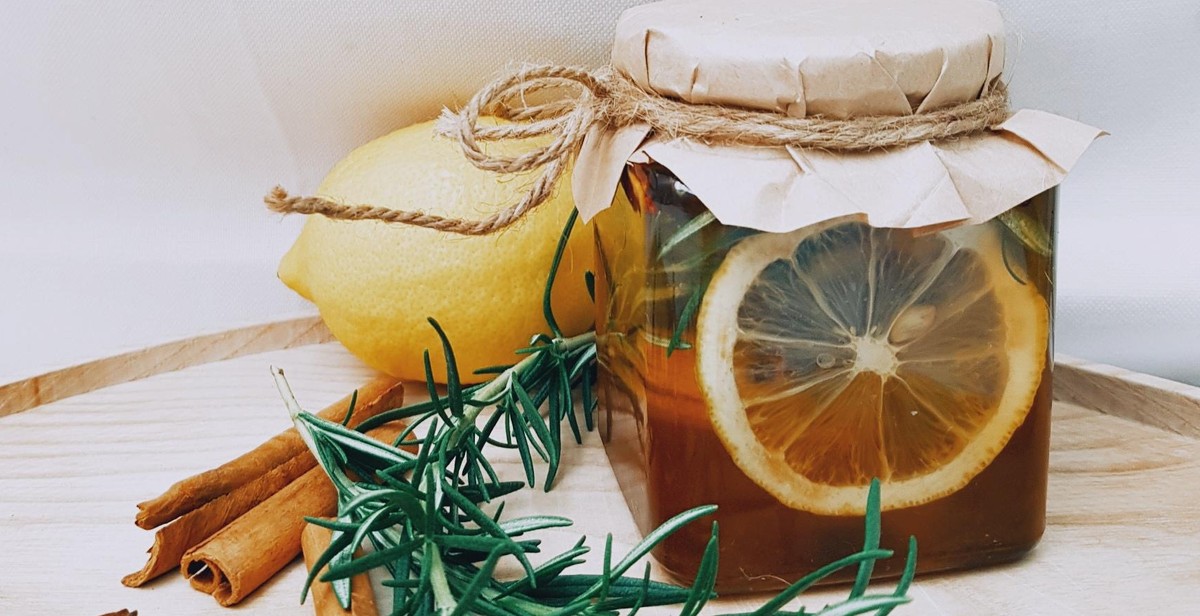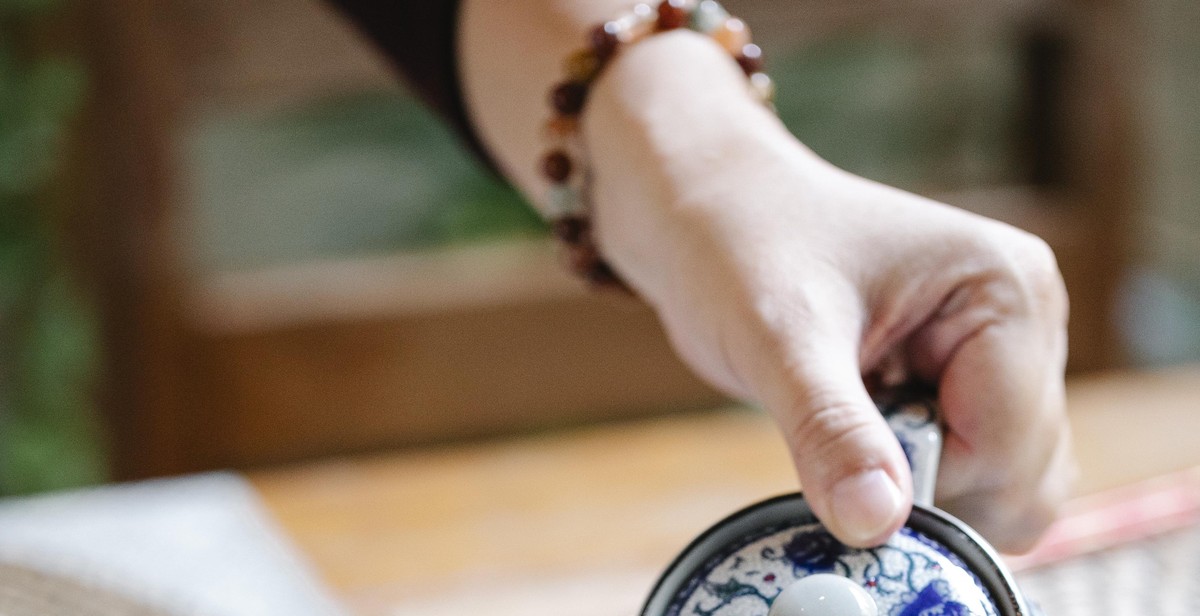Introduction
Herbal infusion tea is a type of tea that is made by steeping herbs, flowers, or fruits in hot water. Unlike traditional tea, which comes from the Camellia sinensis plant, herbal infusion tea is caffeine-free and can be enjoyed at any time of the day.
Herbal infusion tea is known for its many health benefits, including reducing stress, improving digestion, and boosting the immune system. Additionally, herbal infusion teas come in a variety of flavors, making it easy to find a blend that suits your taste.
What is Herbal Infusion Tea?
Herbal infusion tea, also known as herbal tisane, is made from a variety of plants, including flowers, leaves, roots, and fruits. These plants are steeped in hot water to release their flavors and health benefits. Unlike traditional tea, herbal infusion tea does not contain caffeine, making it a perfect choice for those who want to avoid caffeine.
Herbal infusion teas come in a variety of flavors, from fruity to earthy to floral. Some popular herbs used in herbal infusion teas include chamomile, peppermint, ginger, and hibiscus.
Why Make Your Own Herbal Infusion Tea?
While there are many herbal infusion teas available in stores, making your own tea allows you to customize the flavor and tailor it to your specific needs. Additionally, making your own tea can be a relaxing and enjoyable activity that can help reduce stress and promote mindfulness.
- Customize the flavor to your liking
- Tailor the tea to your specific needs
- Relaxing and enjoyable activity
- Promotes mindfulness
In this article, we will guide you through the process of brewing the perfect cup of herbal infusion tea, so you can enjoy all the benefits of this delicious and healthy beverage.

Choosing the Right Tea
When it comes to brewing the perfect cup of herbal infusion tea, choosing the right tea is essential. There are several factors to consider, including whether to use loose leaf or tea bags, selecting quality ingredients, and understanding flavor profiles.
Loose Leaf vs. Tea Bags
One of the first decisions to make when choosing the right tea is whether to use loose leaf or tea bags. While tea bags are convenient and easy to use, they may not provide the same quality and flavor as loose leaf tea. Loose leaf tea is typically made from whole leaves and provides a fuller flavor and aroma compared to tea bags, which often contain broken leaves and tea dust.
Additionally, loose leaf tea allows for more control over the brewing process. The leaves have more room to expand and release their flavor, resulting in a more balanced and nuanced cup of tea.
Selecting Quality Ingredients
Another important factor to consider when choosing the right tea is selecting quality ingredients. Look for teas that use high-quality, organic ingredients that are free from pesticides and other harmful chemicals. Additionally, consider the source of the ingredients and look for teas that are sustainably sourced and ethically produced.
When selecting herbal infusion teas, consider the specific health benefits of each ingredient. For example, chamomile tea is known for its calming properties, while ginger tea can help with digestion and nausea.
Understanding Flavor Profiles
Finally, understanding flavor profiles is essential when choosing the right tea. Different teas have different flavor profiles, ranging from light and floral to bold and earthy. Consider the flavor profile of the tea and how it will complement or contrast with other ingredients in the infusion.
Additionally, consider the brewing method when selecting the right tea. Some teas are best brewed at a lower temperature for a shorter amount of time, while others require a higher temperature and longer brewing time.
| Tea Type | Flavor Profile |
| Green Tea | Light, grassy, slightly sweet |
| Black Tea | Strong, bold, malty |
| Oolong Tea | Floral, fruity, nutty |
| Herbal Tea | Varies depending on ingredients |
By considering these factors when choosing the right tea, you can ensure that your herbal infusion tea is flavorful, high-quality, and perfectly suited to your tastes and preferences.

Preparing Your Equipment
Before you start brewing your herbal infusion tea, you need to make sure that you have the right equipment. Here are some important things to consider:
Choosing the Right Tea Pot or Infuser
The first thing you need to consider is the type of tea pot or infuser you want to use. There are many different options available, including:
- Tea Pot: A tea pot is a classic option for brewing tea. Look for a pot that is made from a heat-resistant material, such as glass or ceramic. Make sure that the pot has a strainer to keep the tea leaves from getting into your cup.
- Infuser Mug: An infuser mug is a convenient option if you want to brew tea on-the-go. These mugs have a built-in infuser that allows you to steep your tea directly in the mug. Look for a mug that is made from a heat-resistant material and has a tight-fitting lid to keep your tea hot.
- Tea Ball: A tea ball is a small metal mesh ball that you can fill with tea leaves and steep in your cup. This is a good option if you only want to brew a single cup of tea at a time. Look for a tea ball that is made from a food-grade stainless steel.
Boiling Water to the Correct Temperature
The temperature of the water you use to brew your tea is just as important as the type of tea pot or infuser you choose. Different types of tea require different water temperatures to bring out the best flavor. Here are some general guidelines:
| Type of Tea | Ideal Water Temperature |
|---|---|
| White Tea | 160-170°F |
| Green Tea | 170-180°F |
| Oolong Tea | 180-190°F |
| Black Tea | 200-212°F |
| Herbal Tea | 200-212°F |
Use a thermometer to measure the temperature of your water before you start brewing your tea. If you don’t have a thermometer, you can use the following guidelines:
- White Tea: Water should be hot but not boiling.
- Green Tea: Water should be hot but not boiling.
- Oolong Tea: Water should be just below boiling.
- Black Tea: Water should be boiling.
- Herbal Tea: Water should be boiling.
By choosing the right tea pot or infuser and boiling your water to the correct temperature, you’ll be well on your way to brewing the perfect cup of herbal infusion tea.

Brewing the Perfect Cup
While brewing herbal infusion tea may seem like a simple task, there are a few key factors to consider to ensure that you end up with the perfect cup of tea. Here are some tips to help you brew the perfect cup:
Measuring the Right Amount of Tea
One of the most important factors in brewing the perfect cup of herbal infusion tea is using the right amount of tea. While it may be tempting to simply eyeball the amount of tea you use, this can result in an inconsistent and weak cup of tea. Instead, use a measuring spoon to ensure that you are using the correct amount of tea per cup of water. As a general rule of thumb, use one teaspoon of loose leaf tea or one tea bag for every six to eight ounces of water.
Steeping Time and Temperature
The steeping time and temperature are also crucial factors in brewing the perfect cup of tea. Different types of tea require different steeping times and temperatures to reach their optimal flavor. For herbal infusions, use boiling water and steep for 5-7 minutes to bring out the full flavor of the herbs.
Adding Sweeteners and Enhancements
While herbal infusions are often enjoyed without sweeteners, adding a touch of honey, agave, or stevia can enhance the flavor of your tea. Additionally, adding a slice of lemon or a sprig of mint can add a refreshing twist to your cup of tea. However, be careful not to overdo it with sweeteners and enhancements, as this can overpower the natural flavor of the herbs.
By following these simple tips, you can brew the perfect cup of herbal infusion tea every time. Remember to measure the right amount of tea, steep for the appropriate amount of time and temperature, and add sweeteners and enhancements sparingly to enhance the natural flavor of the herbs.

Storing Your Tea
Proper storage techniques are essential for maintaining the quality and flavor of your herbal infusion tea. Here are some tips to help you store your tea properly:
Airtight Container
Tea should be stored in an airtight container to prevent exposure to moisture, light, and air. This will help to maintain the freshness and flavor of your tea. Glass jars with tight-fitting lids or metal tins with airtight seals are good options for storing your tea.
Avoid Exposure to Light
Exposure to light can cause your tea to degrade and lose its flavor. Keep your tea in a dark, cool place, such as a pantry or cupboard, away from direct sunlight.
Cool and Dry Environment
Heat and moisture can also cause your tea to deteriorate. Keep your tea in a cool and dry environment, such as a pantry or cupboard. Avoid storing your tea near the stove or in the refrigerator, as the moisture and odors can affect the flavor of your tea.
Away from Strong Odors
Tea can absorb strong odors from other foods, so it is important to store your tea away from strong-smelling foods, such as garlic, onions, and spices. You can also store your tea in a separate container or cupboard to avoid any cross-contamination.
Label and Date Your Tea
It is important to label your tea with the name and date of purchase to keep track of the freshness and expiration date. This will also help you to avoid confusion and mix-ups with different types of tea.
Summary
| Proper Storage Techniques |
|---|
| Store tea in an airtight container |
| Avoid exposure to light |
| Keep tea in a cool and dry environment |
| Store tea away from strong odors |
| Label and date your tea |
Conclusion
Herbal infusion tea is a healthy and delicious beverage that you can enjoy at any time of the day. By following the steps outlined in this article, you can brew the perfect cup of herbal infusion tea that is rich in flavor and packed with nutrients.
Remember These Key Points
- Choose high-quality herbs and spices for the best flavor and health benefits.
- Use fresh, cold water and bring it to the right temperature for the specific type of herbal tea you are brewing.
- Steep the tea for the appropriate amount of time to avoid bitterness or a weak flavor.
- Experiment with different combinations of herbs and spices to find your favorite blend.
Health Benefits of Herbal Infusion Tea
Herbal infusion teas have numerous health benefits, including boosting the immune system, reducing inflammation, improving digestion, and promoting relaxation. By incorporating herbal infusion teas into your daily routine, you can improve your overall health and well-being.
Final Thoughts
Brewing the perfect cup of herbal infusion tea is easy and rewarding. With a little bit of practice and experimentation, you can create delicious and healthy blends that you can enjoy for years to come. So, go ahead and start brewing your own cup of herbal infusion tea today!
